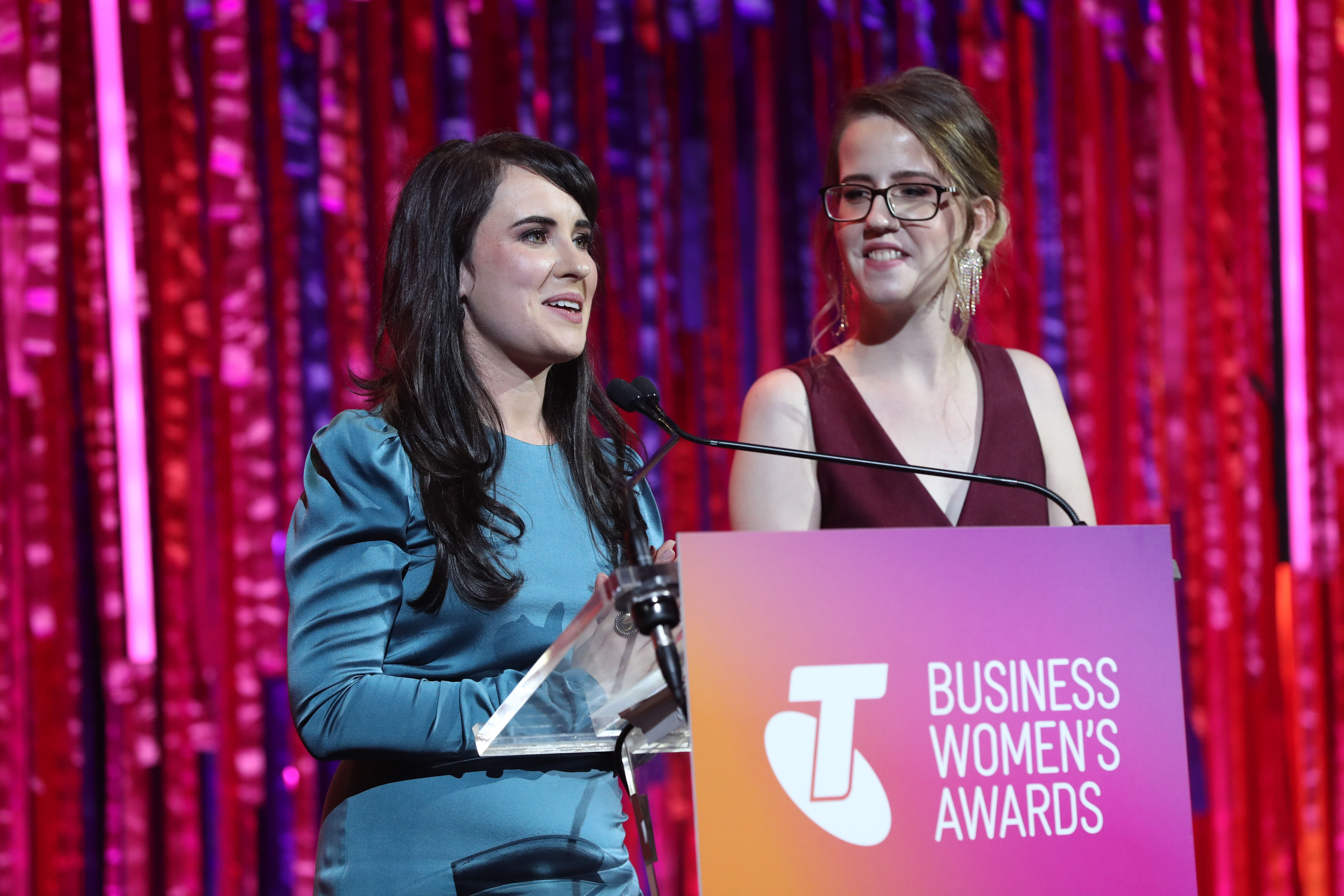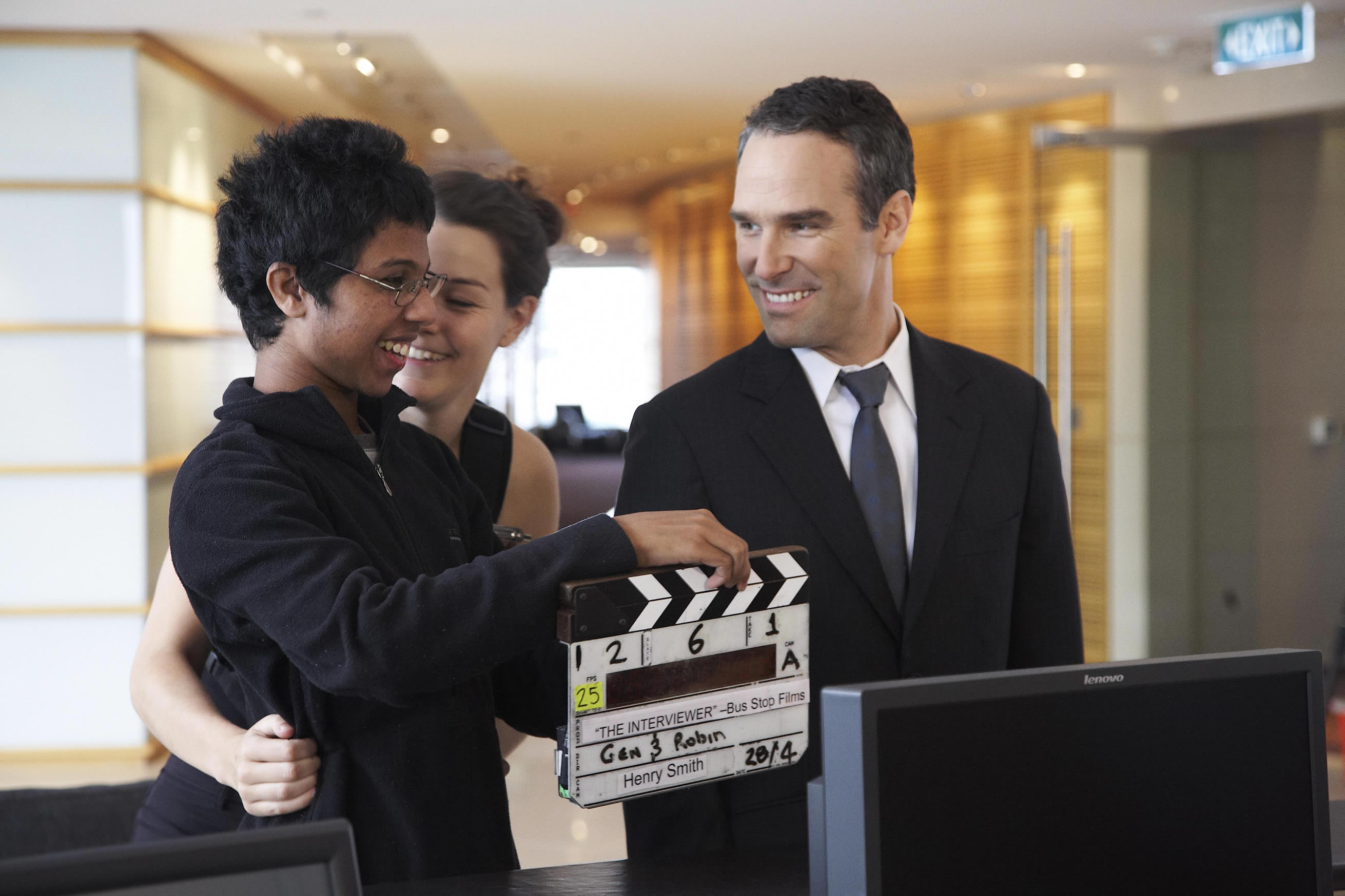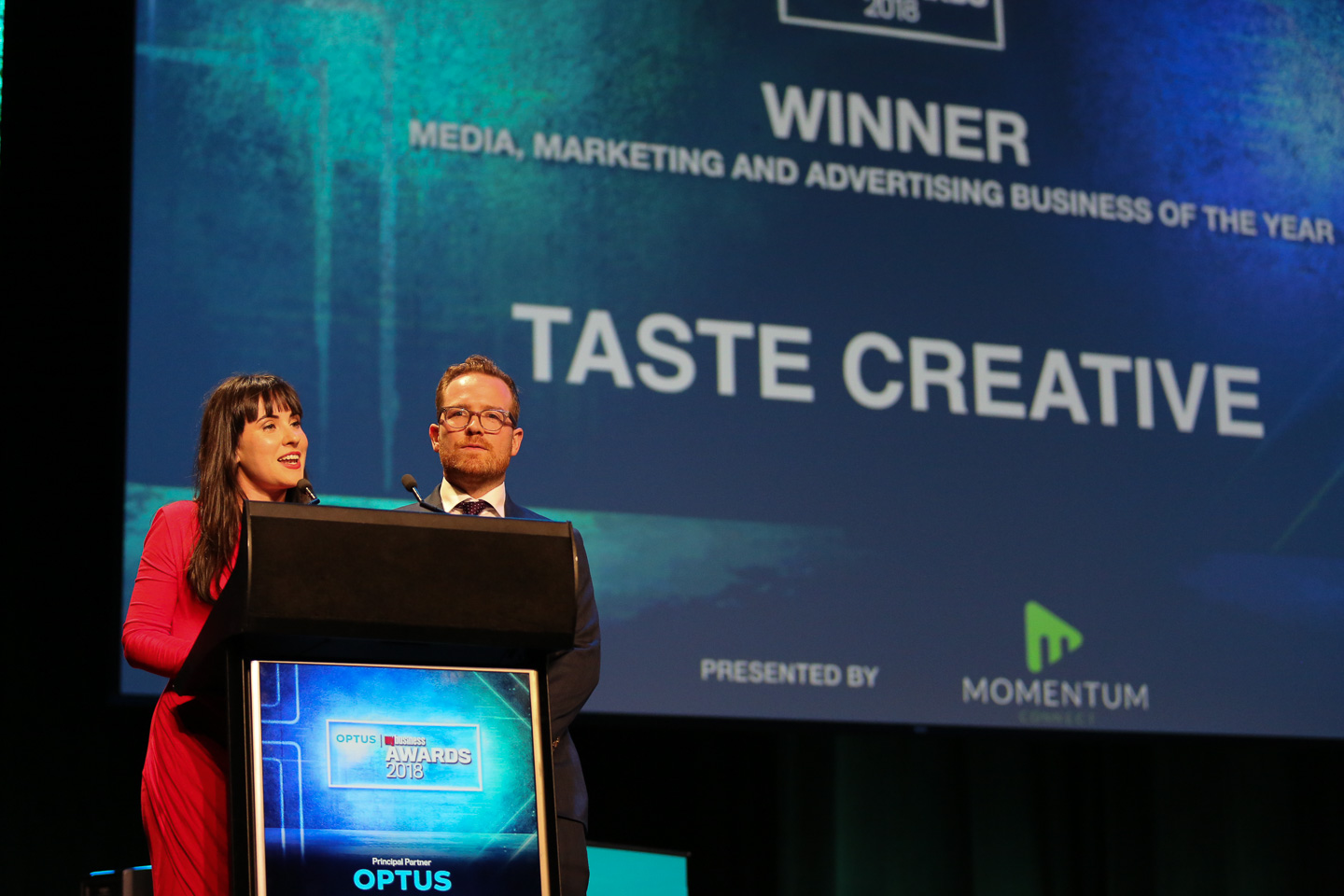Op-Ed: Micro aggressions mean we need to continue celebrating women.
Op-ed // 7th June 2019

Just over a month ago I was getting ready for a very exciting moment in my career.
In the middle of some routine journaling and as I reflected on the fact that in just a few days, I would be attending the national Telstra Women’s Business awards as a nominee, I had a peculiar feeling. I experienced strong sense of self, paradoxically coupled with an overwhelming frustration. I recalled that only nine months prior, I had received some interesting criticisms after delivering a keynote address at a national conference. It reminded me of how important awards programs, that showcase the talent, achievements and successes of women are in our society, because while we might sometimes feel like we’re progressing – we still have a way to go .
I regularly receive invitations to speak on the topic of inclusion and diversity. Now in order for this blog to make complete sense I need to tell you, why. I need for readers, who know diddly-squat about me, to understand a little bit about my career to date, to make a point later down the track.
For over a decade I have been facilitating inclusive film sets and have been forging pathways for the inclusion of people with disability and other underrepresented groups to be employed, represented and gain equal access to the film, television and media industries.

The not-for-profit organisation, Bus Stop Films, which I co-founded and am the CEO of, received a Human Rights Award in 2016 for its efforts. Currently at Bus Stop Films, we are providing paid internships, employment and work placements for filmmakers with intellectual disability at companies such as Endemol Shine, Aquarius Films, See Saw and Taste Creative. Our Accessible Film Studies Program provides classes to approximately seventy people with disability each week (including classes in Mongolia!) I have been the creative director and strategist for a number of internal communications campaigns for large corporates on inclusion and diversity in the workplace and as a film director, I have been an advocate for inclusion and diversity in the film industry for 12 years. I’ve made over 15 inclusive films and I have given keynote presentations at the BBC, Disney HQ, The Scottish Mental Health and Arts Film Festival and a retrospective of my work was showcased in 2017 at the Extraordinary Film Festival in Belgium. I assume this is why in August last year, I was asked to present a keynote on “Raising awareness about inclusion and diversity in the workplace”. It seemed like a pretty good fit.
However, before I take up any speaking engagement, I always ask for the audience demographics – I like to know who I’m speaking to. The audience for this engagement intrigued me; they were all team leaders and managers, 80% were males aged between 40 and 60, 20% were female. There were no Auslan interpreters or audio description required because apparently there was no body present with disability. I thought to myself, they’re obviously aware that this particular sector is in need of an inclusion revolution.
Usually when I deliver a keynote on this topic, I use my personal story of how I became passionate about inclusion in the film industry. I try to motivate people to understand that if we can be inclusive in the film industry we can be inclusive in any industry. I also talk about how there’s data – hardcore evidence that tells us that diversity and inclusion is beneficial to business. There are white papers showcasing that diverse teams overall perform better:
- Their ability to innovate increases by 83%. (Deloite 2013)
- They make decisions 60% faster than non-diverse teams. (Chingnell 2018)
- Diverse thinking can mitigate risk – (perhaps if they’d had a culturally diverse team innovating the “racist soap dispenser”, it wouldn’t have been racist.)
- Research indicates that diversity in the workforce increases the bottom line of companies and provides a larger talent pool to draw from with unique skills, expertise and talents.
While this is exciting, we won’t be able to unlock the benefits of diversity unless our workplace culture is inclusive; this means when people are embracing of difference, they will respect someone who is different to themselves, and acknowledge that they might have something valuable to contribute or perhaps even a better idea than them.
But why would the people in this conference listen to me? I’m not famous, I don’t have a best-selling book on offer. So, to help audiences understand why I have a platform, I usually listen carefully to the bio the MC has been given to read out, sometimes it doesn’t give the audience the full picture. In those cases, I like to spend perhaps 2 – 3 minutes giving an overview of my organisation’s achievements and my successes too, (like in the second paragraph of this blog), so people know they can trust me. I don’t bang on – but I do make a point to ensure people have the information they need to believe I’m a reliable source with a decade of experience. This is because I really do want people to embrace what I’m talking about, and believe me when I tell them that the inclusion revolution is a movement we all need to get on board with. Sounds reasonable, right?

So, I do my presentation, it goes really well and afterwards I get some beautiful feedback and stay for a few drinks. I knew there was a survey going around evaluating my performance and sure, I was nervous. I won’t lie to you, I hate reading feedback because I have a perfectionist streak! But I respect it and I believe it’s incredibly valuable. I always find it beneficial to read notes on my presentations that might tell me to slow down, that a point I made wasn’t quite clear, that some people want more or less information on a particular topic. That kind of feedback, which strengthens my presentations is always really welcomed and appreciated.
Three weeks later, I get the survey responses back. Now, please allow me to quickly contextualise this part of the story – during this time I had been attending Avril Henry’s Great Leaders Are Made (GLAM) leadership program. In the program, Avril encourages women to see unconscious bias and micro aggressions from those around them, as well as call out some of the stigmas about women in the workplace such as, “we’re too emotional” or that “we have to lead with masculine traits to be successful.” Avril also helps women to see that they are socially conditioned to go under the radar. What do I mean by that? Well, we won’t usually put ourselves forward for promotions unless we believe we’re an expert with ten thousand hours of experience under our belt. Whereas, statistically men don’t seem to have as much of a problem with that. We also won’t talk up our achievements – we’re conditioned not to talk about our successes or think too highly of ourselves – otherwise we’re “pretentious” and “stuck up”. We often let others take credit for our hard work in the work place and say ‘we did this’ instead of ‘I did this’. So, when I read this feedback, I read it through a liberated feminist lens.
While there were many lovely comments on my evaluation form, I couldn’t help but look very carefully at a few, and in understanding that I had been talking to company leaders, it made me think about how the young women were fairing in their workplaces. Here’s the comments;
“Speaker really needs to think about the nature of the audience. Too emotive to keep us engaged. I get you are passionate, but you must put the message out in a way we can hear.”
So, what I take from this is I should downplay my passion, because when I am passionate you cannot hear the message. OK, I get that, no one wants to be spoken to by an emotive and passionate woman… That’s awkward and unprofessional!
“Well intended but self-righteous and lack of business experience. Just because she states something is fact doesn’t make it true.”
So I take from this, that after 10 years of advocating for inclusion and being in business, having co-founded and grown two different award winning companies, I still lack business experience and I probably shouldn’t be speaking on the subject. Also, when statistics and data come out of my mouth, it doesn’t make those statistics true anymore and also, I simply don’t have any authority to predict trends. Got it.
“The presenter needs to refine her presence and presentation style as she was too emotive and disconnected from the audience. Also, there was a bit of a “me” party going on. We know you have done great things. Self-praise is no praise at all. Be humble it will help your brand.”
Thank you. This was very helpful. I will no longer talk about my achievements in order to build respect with an audience who know nothing about me. No one likes a confident woman who wants to let you know why you should be listening to her and why she has authority on a subject. That’s grotesque.
Here’s a piece of feedback I’ve received that I did think was helpful, look at the difference.
“Breath is really important when you’re speaking, ensure you’re taking time to breathe between sentences so we can hear everything you have to say, because what you have to say is important .”
Here’s something to think about; I was a 30-year-old woman, encouraging a room filled with 80% males aged 40 to 60, to think differently about how they were recruiting their teams. I am assuming the comments came from men, but if they didn’t – I think that’s sad too. I passionately talked about my story and my journey as an inclusive filmmaker, co-founding both a not-for-profit organisation and an award-winning creative agency and fervently made a case for inclusion and diversity in the workforce having witnessed first-hand the benefits in effect. I wonder, if I had been more like a man aged 40 to 60, would they have listened to what I had to say instead of being offended by my passion, my confidence, potentially my age and my achievements? I read those comments and was immediately taken back to what I learned at GLAM. And I felt sad that these micro aggressions came through in the feedback.
Women of any age who have a proven track record, should be able to state data and predict trends and be respected as experts in their chosen fields, they should not be told, “Just because she states it, doesn’t mean it’s true”. Women should be able to communicate with passion, fervour and emotion, and lead with empathy like we have witnessed with Jacinda Ardern, Prime Minister of New Zealand. They should not be told, “You’re too emotional, I can’t understand you.” We should be listened to no matter how we choose to communicate, passionate or stone-faced; whatever works. Women should be able to talk about their achievements without being told they are having a “me party” (which to be honest sounds kinda fun – maybe women should have more “me parties” if you have one, invite me along.)
So, why am I talking about this? Because while a room of men and women celebrated the exceptional achievements of 38 women in business just over four weeks ago, at the Telstra Business Women’s Awards, it’s still so evident that the unconscious and conscious biases still exist. It’s why we need to continue putting women in the spotlight, because lurking in the background are these attitudes that belittle, disrespect and limit women. Don’t get me wrong, some of my biggest champions and supporters are men, these amazing men have only ever looked at my potential, even at the very start – when I legitimately had no business experience. Also, I have been mentored and nurtured by the most incredible women too. The men and women who have backed me have never assumed I wasn’t capable because I’m a young female. They’ve never once told me I’m too passionate, they’ve never once told me I’m too young, they’ve never once told me that I shouldn’t share my achievements – in fact they’ve said the opposite. They’ve only ever respected me, encouraged me and have given me feedback which strengthens me. Those men and women have believed in me and have advocated for me throughout my entire career, and I am so grateful for them – we need more people like them.
When I received the National Emerging Leader Award at the Telstra awards gala, Avril Henry was actually in the audience alongside many other amazing supporters, both men and women, who were there to cheer me on. As I celebrated, I recalled this feedback and it reminded me that we need to be on the front foot with covert sexism and micro aggressions. Because even ‘constructive criticism’ can be a front for sexist attitudes. We need to listen to what is being said carefully and call it out bluntly.
Even if we do feel sometimes like things are progressing in our favour, the truth is, we still have a way to go.
I urge everyone; call it out. Because it is around.
If you’d like to see me speak, below is a snippet of a presentation I did for ICMI in 2016 as well as my speeches from the Telstra Business Women’s awards. You can be the judge if you think I’m misinterpreting honest feedback for micro aggressions – let me know! Like I mentioned, I find feedback very helpful. When it’s intended to be helpful.
